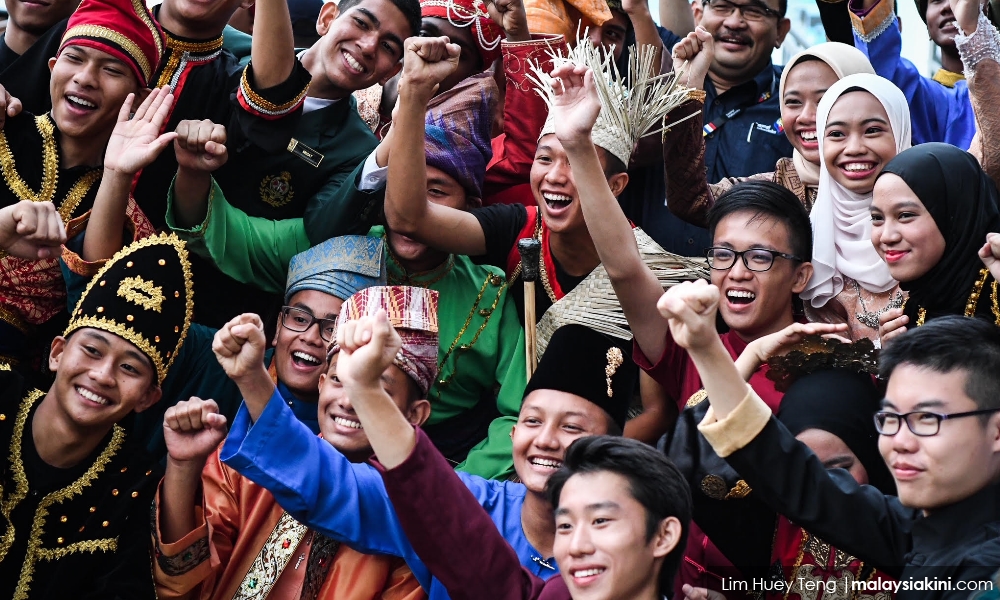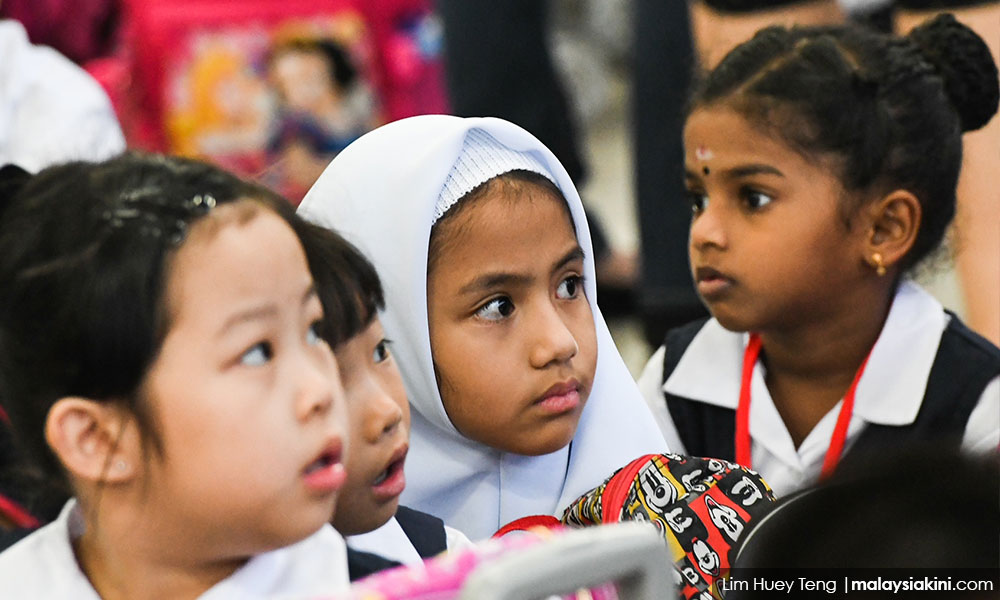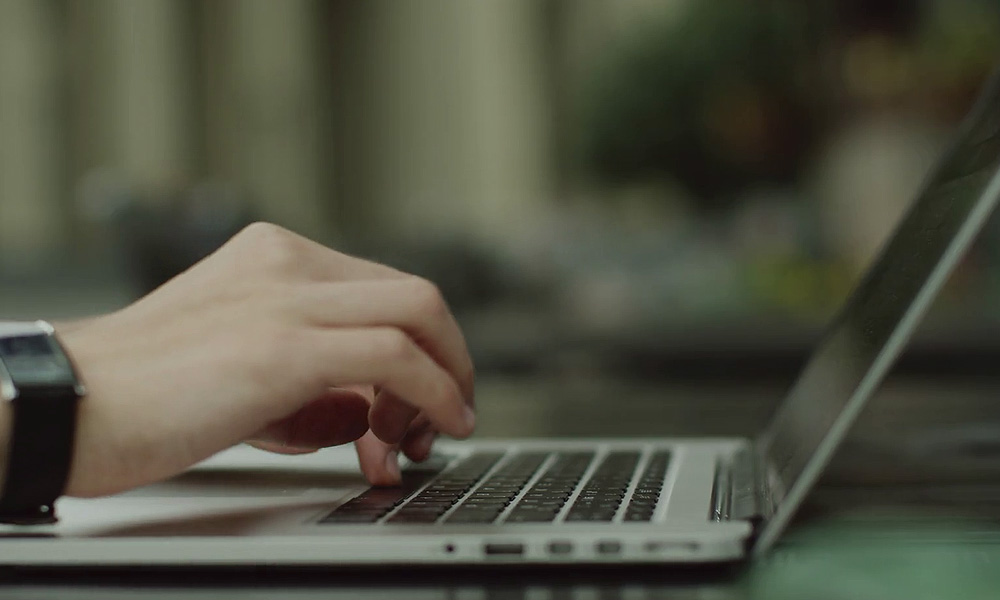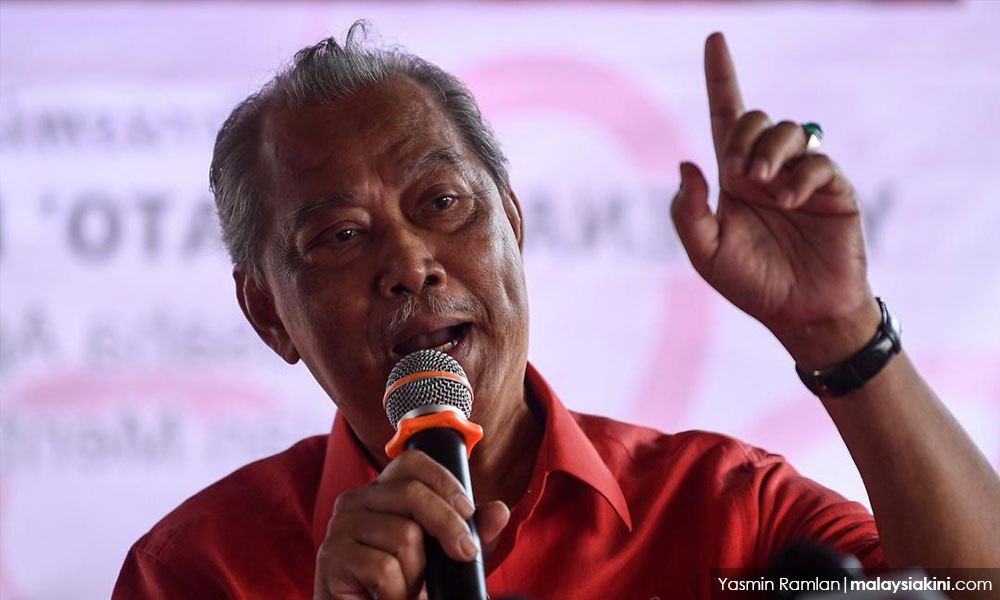
Do Malaysians suffer the presence of each other? Do they dislike people who are different from them? Would Malaysians be happier to be in a country where everyone looks the same, is the same, follows the same religion, practices the same culture and speaks the same language?
Or do Malaysians actually enjoy the colors of racial diversity, the rich tapestry of different cultures, the varied cuisine, the cacophony of different languages spoken and the different types of music and song played everywhere?
Clearly, there will always be a preference for some to be among their own kind, to speak their own language, eat their own food, wear clothes that reflect their identity and worship in their own mosques, temples or churches.
But is there ever a joyous coming together of everybody? Do Malaysians actually appreciate the rich texture of their existences which come from diversity? Do they see the value of diversity? Are their lives enriched by interaction with people of different cultures and beliefs?
There are some Malaysians who have no friends of another race, culture or religion. There are some Malaysians who do not interact with those of a different race.
We read stories of Chinese in Hong Kong who will not sit next to an Indian in public transport. There are anecdotes of Malaysians who will not swim in a pool where there are persons from Africa swimming. And we know about xenophobia in many communities.
In Malaysia, race dominates everything. Race-based parties, politics and politicians have ruled our lives for 60 over years.
Many people are ignorant of the cultures, customs and beliefs of the others.
Racial stereotypes and misconceptions abound - Malays are like this, Chinese are like that and Indians are this and that. Stereotyping is seldom positive.

Many like me lived in mixed neighborhoods, went to schools where students came from all races, went to universities where students came from everywhere, played sports and games with everybody. We eat any kind of food, generally wear western-type clothing and speak a number of languages or dialects.
We usually follow a particular religion but have no problem going to another place of worship for a funeral or a wedding. Prayers of a different faith said in our presence do not trouble us. And best of all, we have friends from all races.
The open house is a big tradition with us. And eating out is a practice that we have learnt from the Chinese. Malaysians generally love food. And we generally love eating out. And there are dishes from every culture that we love. In fact, all our food is influenced by the flavours, spices and other ingredients used by different cultures. For example, Malaysian Chinese food is generally spicier then Chinese food from China or Hong Kong.
There is a coming together of Malaysians in the work place. In businesses, in offices and in professional firms. And good things come from this mix.
Some cultures emphasise rote learning and linear thinking. Some cultures prefer learning through the understanding of underlying concepts and promote lateral thinking. Some consider EQ more important or as important as IQ and focus on character development. And time spent on the sports field is as much as that spent in the class room.
There is widely held belief in many countries - in particular the USA - that people from different cultures bring different perspectives, insights and approaches to research and thinking at the highest levels. And that makes for more creativity, innovation and breakthroughs in technology, science and medicine.
Today, American and British companies actually look for people from different ethnic backgrounds to employ.
The US is probably the most racially diverse country in the world. It is no coincidence that it has also the largest economy in the world. The largest number of patents in the world are registered to US Companies followed by European companies.
In the last 20 years or so, there are an increasing number of patents registered by Asian companies.
The Internet, e-mail and all the other high-tech communication technologies have brought about some kind of social revolution, especially among the young.

Facebook friends create and bind communities of friends. People are connected in ways never thought possible before. An increasing number of marriages born out of internet romances take place.
As a lawyer, I am constantly inspired by young lawyers of all races bound together by their love of law and their pursuit of justice.
Many do pro bono work and are activists fighting corruption in enforcement agencies that often takes innocent victims. Human trafficking, deaths in custody, mysterious abductions and the rights of indigenous people are areas of particular concern.
These are good things but unfortunately, in the last 30 years or, so we in Malaysia have moved in a different direction.
Chinese parents prefer to send their children to Chinese vernacular schools. This is in part due to the switch from English language instruction to Malay language instruction.
It is also because there is a perception that government schools have become too Islamic and therefore less hospitable to children from other faith traditions.
Thousands of Malay students attend religious schools, while a large portion of Indian children attend Tamil primary schools.
Also in the last 30 years or so, the number of non-Malays in the civil service, the police and the armed forces has decreased drastically. And more Chinese students attend private colleges and universities than Malay students.
All these means there is an increasing number of Malaysians who are growing up with little or no interaction with people of other races.
And then there are political parties and politicians who preach politics of division and separation. They say to their people - vote only members of your own race or religion.
Some say that you cannot trust a member of another race to look after your rights and interest. But some politicians go further than that. They say that members of another race or religion are threats to your race and religion.
So, a Christian attorney-general of impeccable credentials is a problem, as is a Christian Kadazan chief justice who was the senior-most Federal Court judge at the time of appointment.
A Chinese finance minister is unacceptable to some. And of course, for PAS president Abdul Hadi Awang, a non-Muslim can never be equal to a Muslim and non-Muslims can never be part of the cabinet or hold senior government positions.
There was a time when the chief of navy was Indian, and there were Chinese and Indian generals. So, what went wrong? Where do we go from here? Where will these attitudes and politics take us?
Continuing like this will take us to the edge of the abyss. Look at the events in Sri Lanka. Do we need an experience like that to learn obvious lessons?
We all remember the furor when Muhyiddin Yasin - then Deputy Prime Minister said - I am Malay first.

The reaction was not because he said that he was Malay and would champion the rights of Malays, but because of the context in which his statement was made.
Is being Malaysian an aspiration for each of us? What does being Malaysian mean? Is that identity important to us? Should we think like Malaysians? Do we identify ourselves as Malaysians?
Do we ever come together as Malaysians? Is that a prior identity for some of us? No one is saying give up your ethnicity or culture or religion. Can we be both Malaysian and Chinese, Malay or Indian at the same time?
In 2015, 17 percent of newlyweds in the US had a spouse of a different race or ethnicity. In 2016, more than 20 percent of marriages in Singapore were inter-ethnic. Inter-ethnic or cross cultural marriages also occur quite frequently in Malaysia and in most diverse societies.
I am not advocating assimilation as the solution for racial conflict. I am just demonstrating the blurring of racial lines.
This is something each of us must think about. It is crucial to our politics and to our future. And to the future of generations ahead.
It was the hope that we saw in Harapan. It was the despair we experienced under BN.
Can our politics transcend race? Can we rise above our prejudices and embrace each other? Can we accept that skin colour does not run and that dark skin does not mean dirty? Can we grow to like each other?
Those are the questions we need to ask ourselves.
DAVID DASS is a lawyer and Malaysiakini subscriber/commenter. - Mkini


No comments:
Post a Comment
Note: Only a member of this blog may post a comment.